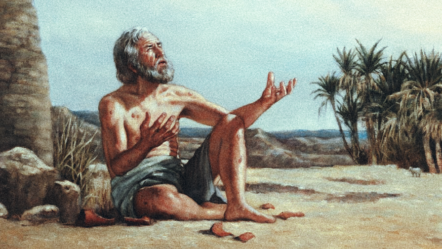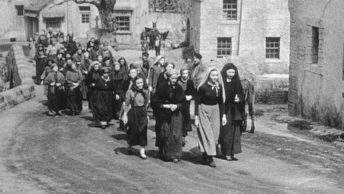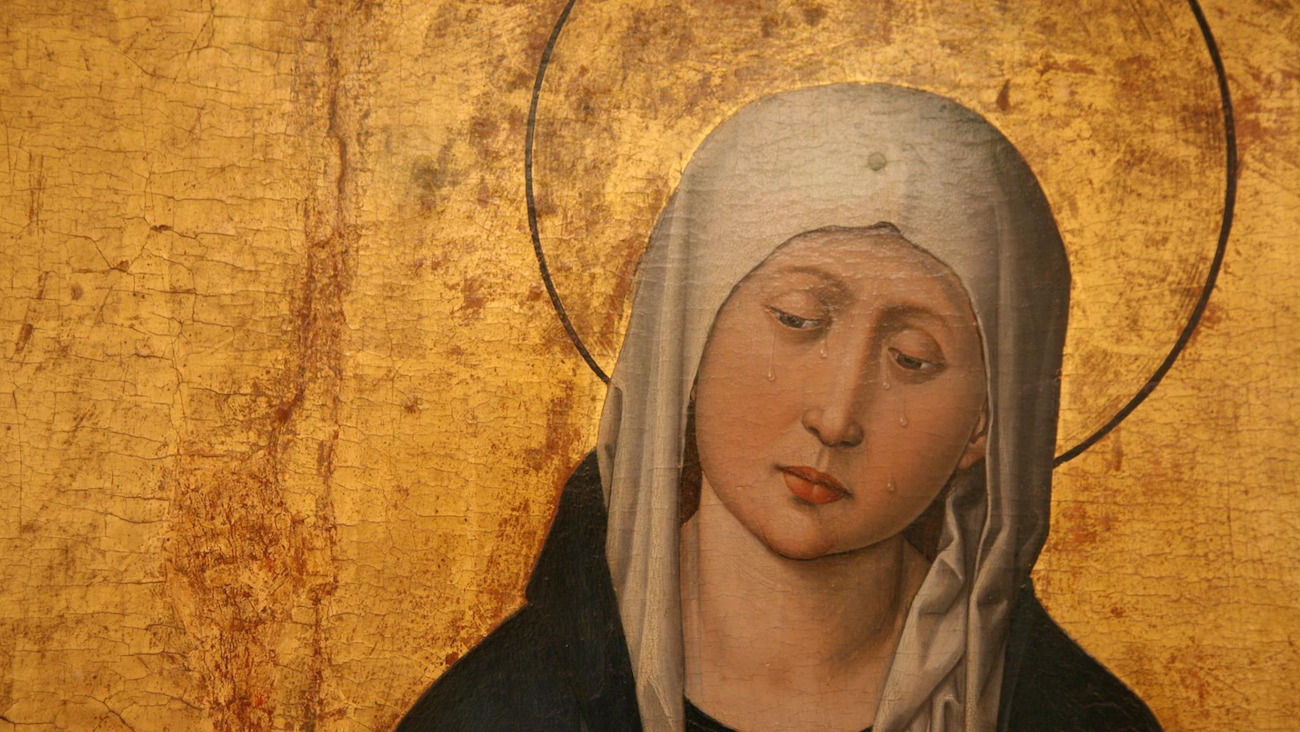The older we are the more evidence we accumulate to agree with Job and his assessment of life: So, I have been assigned months of misery, and troubled nights have been allotted to me. (Job 7:3)
In painful situations stretched out over the years, one might feel pushed inexorably towards bitterness, cynicism, even near the brink of despair. Job, this iconic Old Testament figure of composure and dignified reaction to misfortunes and tragedies, proposes unconditional trust in God as the correct remedy to fend off bitterness, cynicism, and despair. Having run out of plausible explanations for the misfortunes that had befallen him and his family, Job takes a courageous leap of faith prompted by humility and reliance on God’s wisdom. However, Job’s humble submission to God’s wisdom before the mystery of evil striking the just and the innocent is woefully insufficient to keep most people from bitterness and displaying a rebellious spirit while so many simply crumble.
The Gospel passage (Mark 1:29-39) shows us the difference that Jesus, the Son of God in human flesh, should make as we try to make sense of pain and suffering. It also helps us deal with, arguably, the thorniest impossibility there is: to reconcile God’s almighty power, perfect justice, and infinite love with the suffering of the just (like Job) and of children.
There are three truths which we readily accept: God is the Almighty, God is perfect justice, and God is love. However, when we think about those who suffer unjustly and children struck by cruel, dreadful diseases, on this earth, our faith is reduced in frightening fashion:
We can believe that God is all-powerful and perfect justice, but not love… We can believe that God is all-powerful and loving, but unjust. We can believe that God is love and perfectly just, but at times powerless… With this uneasy feeling our faith is deeply shaken!
Today, the Father gives us his answer: His only begotten Son in human flesh. [He sent him] to fulfill what had been said by Isaiah the prophet: “He took away our infirmities and bore our diseases.” (Matthew 8:17)
Today’s gospel passage (Mark 1:29-39) for the Fifth Sunday in Ordinary Time gets into the details about the Father’s response to our inner turmoil.
First, Jesus teaches in the synagogue on a Sabbath, and then, goes into the house of Simon Peter and Andrew and cures Simon’s mother-in-law. At sunset, as soon as the Sabbath is over, he cures many who were sick, and he drives out many demons. Jesus cures the sick and the possessed until it is dark, and he is totally exhausted. Then, he spends the whole night in prayer to the Father so that, reenergized by intimacy with the Father he can preach and heal in many other villages.
God’s answer to our inner turmoil at the suffering of the just and of children is immediate intervention. Nothing matters to God more than our pain.
Throughout his public ministry, Jesus embraced and experienced all our human limitations as his heart was constantly moved to pity at the plight of the suffering. At the end, his cross was so heavy with the pain and the mistakes of the whole world that it crushed him.
But he was pierced for our offenses, crushed for our sins; upon him was the chastisement that makes us whole, by his stripes we were healed.
Isaiah 53:5
The Church has learned this lesson very well.
Anywhere, especially in mission lands, the Church hurries to make sure that people’s basic needs are addressed and met. Only then, once the minds and the hearts are freed of immediate, pressing concerns do they open to receive the light of the Gospel and learn about Jesus and the Father’s love.
And, lest we were to think that this is idle theory because we cannot predicate God’s infinite love, power and justice at the same time, Jesus told us already that we, too, have to focus on attending to our deprived neighbor’s basic needs of hunger, thirst, nakedness, homelessness, imprisonment and sickness if we want to make it to heaven.
In the meantime, in our world warped by sin and evil, this is how the Father cares for the suffering of the just and of children: He opens the eyes and touches the hearts of people of goodwill to spring into action and continue Jesus’ mission of healing and caring until all tears are wiped away and the veil of grief is lifted for good to make room for endless rejoicing in the Father’s eternal home.








